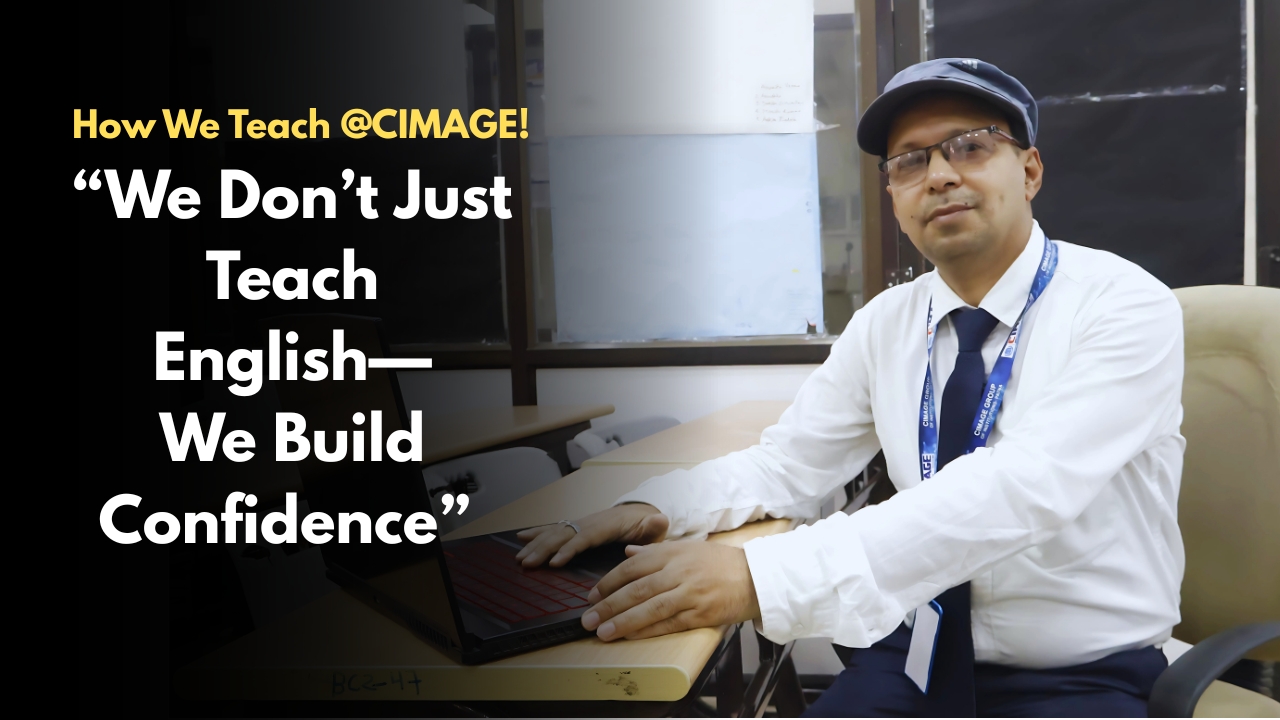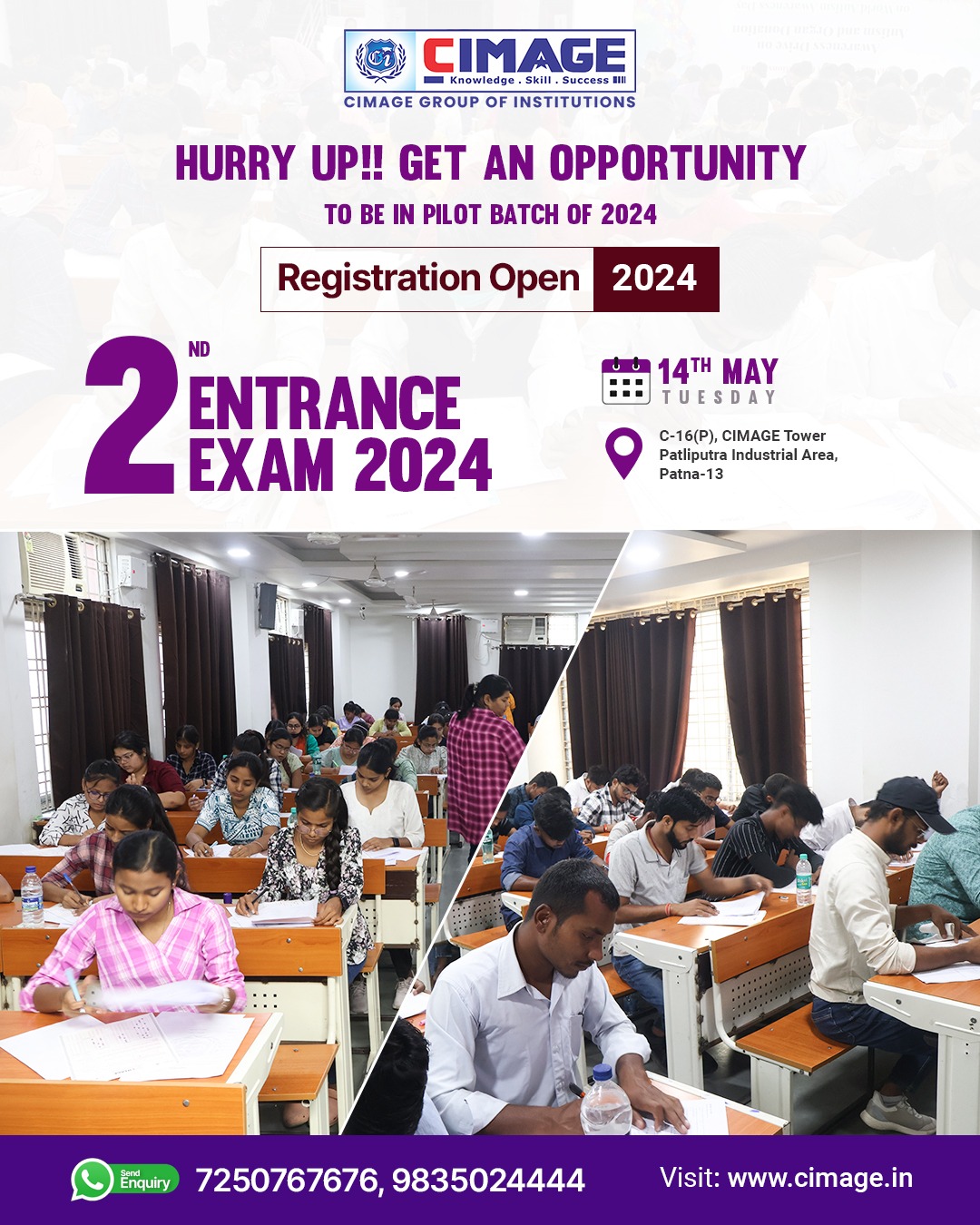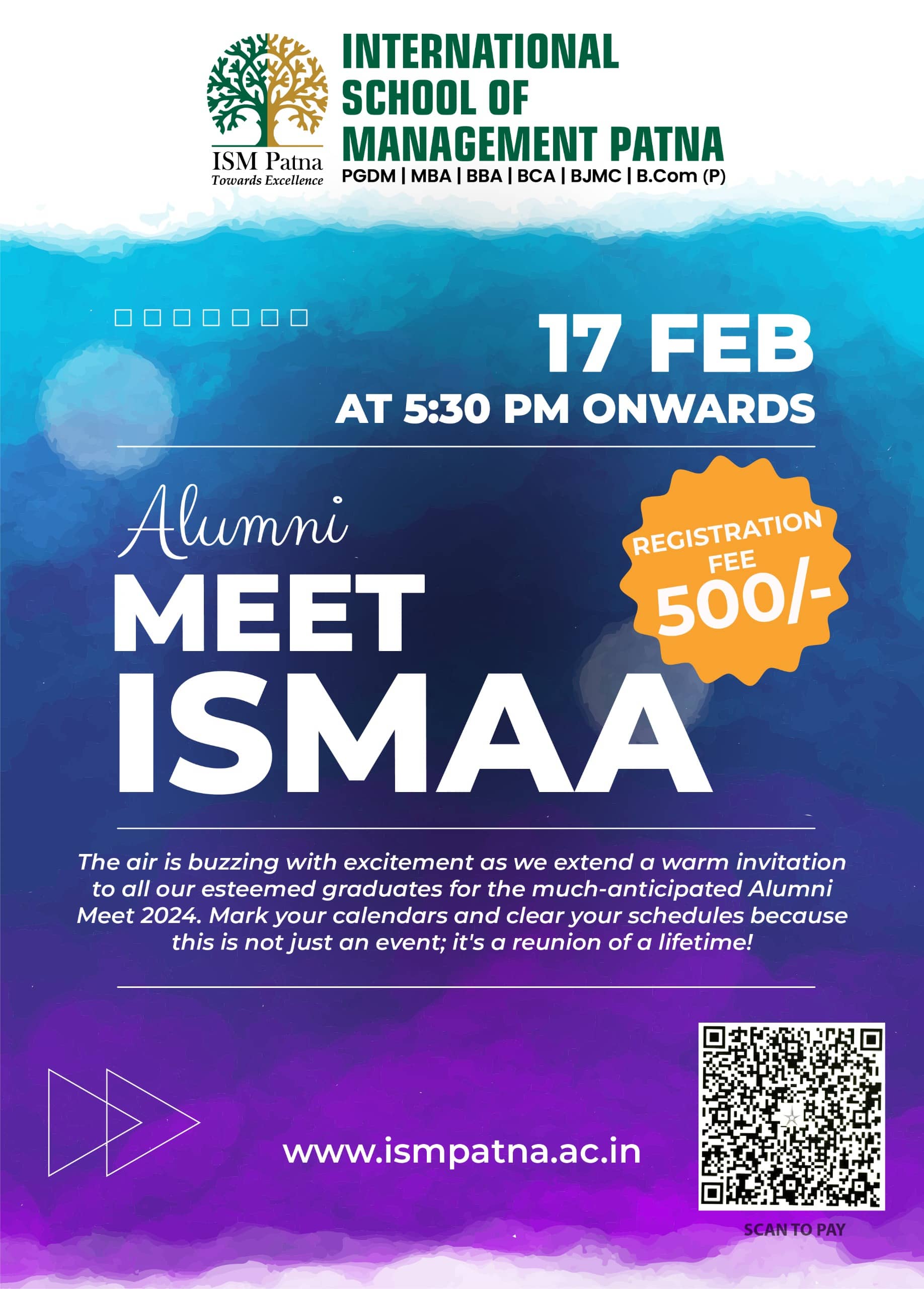
“We Don’t Just Teach English—We Build Confidence” | An Interview with Mr. Nilanjan Bose, CIMAGE College
CIMAGE College, Patna, is known not just for academic excellence but also for shaping confident individuals who can express themselves in English. One of the key people behind this transformation is Mr. Nilanjan Bose, a respected English faculty member who’s been a part of the institution for the past 9 years.
We sat down with Mr. Bose for an honest and inspiring chat about how he helps students—especially from rural backgrounds—overcome their fear of English communication. Here’s how the conversation went:
Interviewer: Hello Sir, how are you today?
Mr. Nilanjan Bose: I’m absolutely fine, thank you!
Interviewer: Please tell us about yourself and your journey with CIMAGE.
Mr. Bose: My name is Nilanjan Bose, and I’ve been associated with CIMAGE for the past nine years. My role here is to nurture students and help them improve their communication skills, which is something every student needs, no matter which field they belong to.
Interviewer: You’ve worked closely with students. What kind of communication activities do you do in class?
Mr. Bose: Oh, we do a lot! But first, I must say, I love seeing students grow from hesitant to confident. Many of them come from rural or small-town backgrounds—like Bhagalpur or Khagaria—where English isn’t used much in daily life. So we start at their comfort level.
We begin with a Bridge Course, which is like an induction. We explain why English matters and try to get them to speak—even just a little. Most students already understand English; the real issue is stage fright. We try to remove that fear.
Interviewer: So it's more about building confidence than just teaching grammar?
Mr. Bose: Exactly! People think students from Bihar or rural areas can’t speak English. But that’s not true. They’ve all passed their 10th and 12th exams, many of them with English literature. They know the language.
What they lack is motivation and a chance to express themselves. That’s what we give them. We don’t focus too much on grammar at first—we want them to start framing sentences and speaking freely.
Interviewer: For those who are complete beginners, how do you help them start learning the language?
Mr. Bose: We use a step-by-step, logical method. First, we start with the alphabet, then move to common words. Once they know what a word means, we help them make simple sentences using those words.
We use smart boards, write things on the board, and give real-life examples. We keep things very basic and interactive. Our main goal is to make the student feel comfortable and remove their fear of making mistakes.
"You can’t solve a 10-year problem in one day, but with regular effort, we start seeing amazing changes."
Interviewer: What kind of events or activities do you organize to build communication skills?
Mr. Bose: One of the biggest and most exciting events is the Communication Fest. The name itself sometimes scares students—they think they have to give a big speech. But we break it down into smaller, enjoyable activities like:
Group JAM (Just A Minute) Sessions
Four students stand together. They’re given a topic, and each one speaks for just one minute. It’s fun, and they love it once they try.
Thematic Appreciation
We show them a picture and ask them to describe what they see. This builds their creativity and sentence formation.
“Even if they make grammar mistakes, we appreciate the effort. That’s how confidence grows.”
We also divide classes into training groups—Group A, B, C, etc.—based on student interest and comfort. We provide extra coaching before events so they feel prepared.
Interviewer: What about everyday classes? Do you involve students there too?
Mr. Bose: Yes! In every class, we keep 15 minutes for student participation. After my lecture, I call one student to explain the topic to the rest of the class. This boosts public speaking confidence, helps them revise, and makes the class more engaging.
The idea is to give every student a safe space to speak, make mistakes, and improve without fear.
Interviewer: Do you also use digital methods to support communication learning?
Mr. Bose: Definitely. The world is going digital, and so are we. At CIMAGE, we use:
- Smart boards for visual learning
- Our YouTube channel, where we upload videos regularly
- Facebook & Instagram for updates and learning resources
- WhatsApp groups where students can ask questions anytime
If a student has a doubt, they just drop a message—we try to respond and help them as soon as possible. This ensures learning doesn’t stop outside the classroom.
Interviewer: In every class, there are always some students who hesitate or stay quiet. Some even get ignored. How do you handle that?
Mr. Bose: You’re absolutely right. In a class of 60, it’s hard to give one-on-one attention to everyone. But we try to identify the quieter students—those who hesitate but want to speak.
We make small focus groups for them. We give them more chances to speak, encourage them gently, and never judge them. Our job is to bring everyone onto the same platform—no one should feel left behind.
“It’s not about who speaks well—it’s about helping those who want to speak.”
We focus on removing their fear, and once they gain confidence, the results are truly magical.














